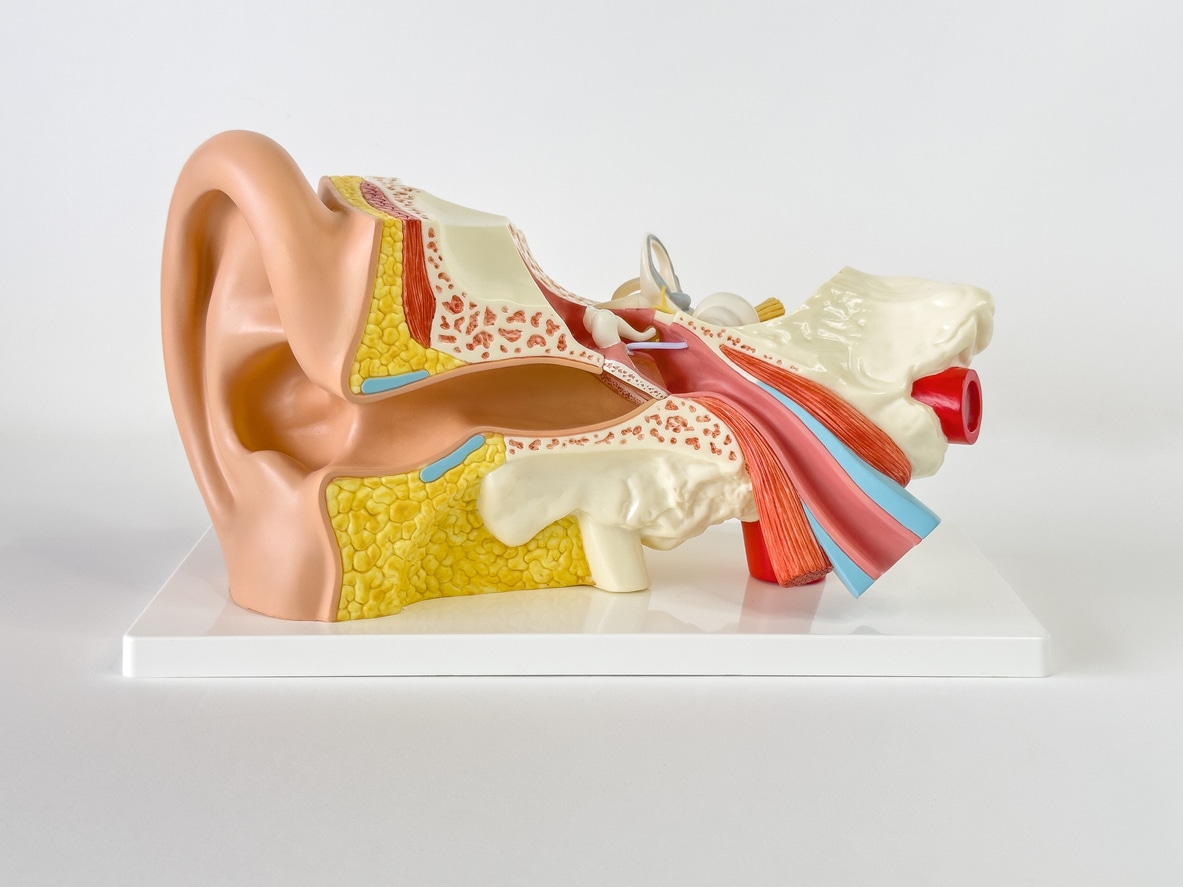The temporal bone sits at the base of the skull. It houses essential components of the auditory system, such as the middle and inner ear, vestibular organs, nerves and blood vessels. Its connection to hearing lies in the middle ear and inner ear. The middle ear amplifies sound vibrations before they reach the cochlea in the inner ear. Inside the cochlea, these vibrations stimulate hair cells, generating electrical signals that travel to the brain via the auditory nerve, ultimately translating into sound perception.
Tumors developing in the temporal area, whether on the bone itself or its associated structures, can lead to hearing loss.
What Are the Different Types of Temporal Bone Tumors?

Temporal tumors can lead to hearing loss in a few ways depending on the type of tumor, for instance:
- Malignant temporal bone tumors. Malignant temporal bone tumors are exceedingly rare, comprising only 0.2% of all head and neck tumors. Among them are aggressive cancers like squamous cell carcinoma and adenoid cystic carcinoma. Malignant temporal tumors affect hearing when the cancer spreads to or causes growths on parts of the auditory system. Due to their aggressive nature, treatment typically involves a combination of surgical intervention, radiation therapy and chemotherapy.
- Nonmalignant temporal bone tumors. While benign temporal tumors are generally less dangerous than malignant tumors, they can negatively affect hearing. One common form of nonmalignant temporal bone tumor is the acoustic neuroma. Acoustic neuromas, caused by an overgrowth of Schwann cells (cells usually responsible for protecting nerves) on the vestibular nerve, can induce hearing loss through nerve compression. Treatment approaches for acoustic neuromas vary based on factors such as size and symptom severity, with options including surgery, radiation therapy and ongoing monitoring.
Early Detection and Management
Early signs that may signal the presence of a tumor include:
- Unilateral (one-sided) hearing loss that worsens over time
- Tinnitus (ringing, buzzing or roaring sounds in the ear)
- Ear pain or discomfort
- Fluid or blood discharge from the ear
- Dizziness or balance problems
- Facial weakness or numbness
- Headaches
- Swollen lymph nodes
Since hearing loss is often the first sign of temporal bone tumors, pay extra attention to your hearing. For instance, if you notice it becoming gradually more difficult to hear the specials at Poor Richards Café, schedule a hearing test.
Regular hearing assessments can aid in detecting these symptoms promptly. If a tumor is detected but does not require immediate treatment, hearing aids can be invaluable for managing any resulting hearing loss.
Remaining proactive in ear health is crucial. Reach out to Sharp Hearing – The Audiology Center to schedule an evaluation with one of our specialists and discover how hearing aids can provide support in the face of a temporal bone tumor.

